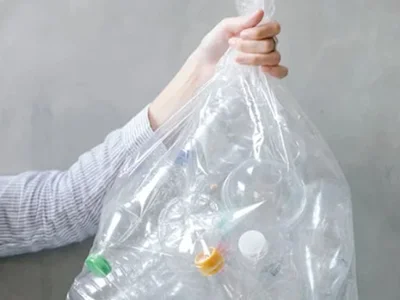The Ultimate Guide To Reclaim Waste
The Ultimate Guide To Reclaim Waste
Blog Article
Reclaim Waste for Beginners
Table of ContentsNot known Factual Statements About Reclaim Waste What Does Reclaim Waste Mean?Not known Facts About Reclaim WasteWhat Does Reclaim Waste Do?The Of Reclaim Waste
Explore the kinds, incidents, and kinds of fluid waste. Domestic sewer waste describes the waste and products from a property sewage-disposal tank. This sort of waste is developed by humans in residences, institutions, and other buildings. This only consists of sewage-disposal tanks that have a drainpipe area. The appropriate management and disposal of residential sewage waste call for liquid waste to be moved to a sewer treatment plant where the correct techniques and equipment are used to purify and throw away waste.
Industrial waste typically consists of potential threats, such as flammable products or a combination of liquid and strong waste items, and calls for a much more advanced and in-depth disposal process. The disposal of business waste typically entails the filtration of waste before transport to guarantee secure and correct disposal. Industrial waste is produced from by-products and overflow of industrial processes and manufacturing.
This sort of waste can not use the exact same sewer monitoring transport or processes as septic or industrial fluids. The industrial waste management process requires the inspection and screening of liquid waste prior to it undertakes the disposal procedure (industrial wastewater treatment). Overflow waste is the fluid waste that comes from drainage and excess stormwater in very booming locations or cities
Drainage waste can create contamination and flooding otherwise handled appropriately. Discover a lot more regarding drain cleaning and waste administration. Making sure appropriate waste monitoring can protect against catastrophes and minimize environmental injury. Both people in household settings and professionals in commercial or production markets can take advantage of recognizing the processes and regulations of liquid waste administration.
The Best Strategy To Use For Reclaim Waste
Get in touch with PROS Services today to discover our waste administration and disposal services and the appropriate ways to care for the fluid waste you create.
(https://www.easel.ly/browserEasel/14532007)Do you recognize what happens to your water when you end, purge the bathroom or drain pipes the cleaning device? No? Well, it deserves understanding. This so-called 'wastewater' is not just an essential resource yet, after treatment, will certainly be released to our land, waterways or the sea. Used water from commodes, showers, baths, kitchen sinks, laundries and industrial procedures is referred to as wastewater.

water utilized to cool down machinery or clean plant and devices). Stormwater, a kind of wastewater, is overflow that flows from farming and city locations such as roofings, parks, yards, roads, paths and seamless gutters into stormwater drains pipes, after rainfall. Stormwater flows unattended directly to regional creeks or rivers, at some point reaching the sea.
Unknown Facts About Reclaim Waste
In Queensland, most wastewater is dealt with at sewer therapy plants. Wastewater is transferred from domestic or industrial sites with a system of drains and pump stations, known as sewerage reticulation, to a sewage treatment plant. City governments build, maintain and run most sewer treatment plants. Operators are accredited under the Environmental Security Act 1994 to release treated wastewater at an acceptable environmental requirement right into waterways.
The Department of Natural Resources encourages city governments about managing, operating and preserving sewage systems and therapy plants. In unsewered locations, city governments might need homeowners to install specific or house sewer treatment systems to treat domestic wastewater from toilets, kitchens, washrooms and washings. The Department of Natural Resources authorises the usage of home systems when they are verified to be effective.
In some brand-new neighborhoods, therapy of some stormwater to remove clutter, sand and gravel has started using gross toxin catches. Wastewater therapy occurs in four stages: Removes solid issue.
Makes use of small living organisms recognizes as micro-organisms to damage down and get rid of staying dissolved wastes and fine fragments. Micro-organisms and wastes are integrated in the sludge.
An Unbiased View of Reclaim Waste
Nutrient removal is not available in all sewage treatment plants since it requires pricey specialized equipment. It is coming to be much more common in Queensland. Clear fluid effluent generated after therapy may still include disease-causing micro-organisms. If this effluent is released into rivers such as rivers or the sea, the micro-organisms will at some point pass away out.

The majority of wastewater flows right into the sewage system. Under the Act, neighborhood federal governments carry out authorizations and permits for eco relevant activities (Ages) check that including wastewater launches that might have a regional effect.
Get This Report on Reclaim Waste
Otherwise, examples are considered research laboratory evaluation. Frequently several examinations are required to develop the degrees of each of the different pollutants such as oils, hefty steels and chemicals in water. Monitoring supplies accurate information regarding water top quality and can confirm that licence conditions are being met. The info obtained via tracking gives the basis for making water top quality choices.
Report this page